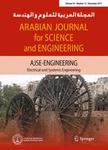版权所有:内蒙古大学图书馆 技术提供:维普资讯• 智图
内蒙古自治区呼和浩特市赛罕区大学西街235号 邮编: 010021

作者机构:Sakarya Univ Dept Comp Engn Serdivan Sakarya Turkey Sakarya Univ Dept Software Engn Serdivan Sakarya Turkey Sakarya Univ Appl Sci Dept Elect & Elect Engn Serdivan Sakarya Turkey
出 版 物:《ARABIAN JOURNAL FOR SCIENCE AND ENGINEERING》 (Arab. J. Sci. Eng.)
年 卷 期:2021年第46卷第4期
页 面:4015-4037页
核心收录:
主 题:Lightweight block ciphers IoT Cloud Security Raspberry pi 3 Arduino mega 2560
摘 要:Today, all smartphones, notebooks, or other communication devices could connect to the cloud, so the data are accessible everywhere. When these devices are interconnected through the internet, they make an Internet of Things (IoT) network that exchanges data among network nodes and other services. IoT has a broad application area from smart applications to various industrial usages. However, the high volume of data transferred in the IoT network makes it crucial to implement mechanisms to transfer the data safe and secure. Enciphering is one of the best techniques to offer end-to-end security. Considering an IoT network, nodes have restricted resources, and applying classical cryptography methods are costly and not efficient, so lightweight block ciphers are one of the sophisticated solutions to overcome security drawbacks in this scope. In this paper, ten lightweight algorithms involve AES, PRESENT, LBlock, Skipjack, SIMON, XTEA, PRINCE, Piccolo, HIGHT, RECTANGLE tested to evaluate their performance for key factors such as memory usage (RAM and ROM), energy consumption, throughput, and execution time for both encryption and decryption modes over cloud transmission. We have done simulations using Raspberry Pi 3 and Arduino Mega 2560 as the leading devices in the IoT scope. As a result, this paper will help IoT developers to choose the right platform and enciphering algorithm to set up a secure network due to multiple factors like energy and memory usage, especially for software platforms.